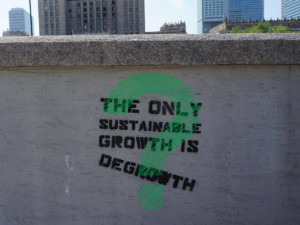Three critics walk into a bar …

Three critics — a settler colonialism critic, an illegal immigration critic, and a mass tourism critic — walk into a bar …
Is this the set-up for a joke or a real possibility? What shared concerns might they discuss, and where might their perspectives diverge?
It’s a “Good Tourism” Insight Bites question.
Your correspondent put the question to the travel & tourism stakeholders in the “GT” network, inviting responses of no more than 300 words. (You too can join the “GT” network. Register.)
Thanks to the three respondents — an academic, a writer, and a publisher — who took the time to share their thoughts on the question. Their answers appear in the order received.
And thanks to the student and tourism official, coincidentally both from Kenya, for their “GT” Insight BiteX contributions.
Bites menu
- ‘If only these blowhards would …’
- ‘Tourists go home, immigrants welcome’
- ‘Water on a grease fire’
- “GT” Insight BiteX (‘X’ is up to you)
- Eight ways technology is transforming tourism
- Is tourism ready for another pandemic?
- What do you think?
- Featured image (top of post)
- Previous “GT” Insight Bites
‘If only these blowhards would …’
K Michael Haywood, publisher, ‘Destinations-in-Action’, Canada
Georgia Avenue Tavern, a peaceful evening, but the rants are getting on my nerves.
A tiresome threesome of visitors are voicing displeasure at my island nation’s colonial mentality, a displaced Haitian diaspora, and the crowds steaming off the cruise liners.
I can’t help but overhear troubling commentary toward what we at the ministry are striving to achieve: ‘good tourism’.
Of course, I wonder: Do they know what Trouble really is? Have they truly lived it? Felt our despair, a sense of hopelessness, revealed also in Jamaica Kincaid’s A Small Place.
Sure, it may be interesting to know what these critics might have in common or where their perspectives might diverge. I am more concerned, however, at the capacious nature of their criticism that includes all manner of commentary. An evaluative dimension that‘s less than determining, perhaps non-existent.
I sense an inability to appreciate historic or original contexts (place, culture, politics, institutions, people). Criticisms, or appeals based on experience, are limited to participatory roles as guests or observers, but not based on being hosts or part of our workforce.
If only these blowhards would express dissent as a means toward seeking ascent. How?
- Being truly evaluative.
- Communicating complete understanding and interpretation of concerns.
- Awakening our perceptions as to what is missing or is being dismissed.
- Defining interpretations and explaining inner workings and realities.
- Appreciating and admiring the efforts of others, their circumstances, and realities.
- Pointing out the distinguishing qualities, efforts, and attributes of all.
- Revealing what is different, atypical, and exceptional, not just consequential.
- Clarifying achievements and forfeitures of purpose in accordance with principles.
- Recognising that criticism is conditional, contingent, practical, and pragmatic.
As Meshell at Georgia Avenue advises: “Wake up, return, balance, align”.
After all, “Nobody knows for sure, what is real or true.”
‘Tourists go home, immigrants welcome’
Melanie Smith, Associate Professor and Researcher, Budapest Business University, Hungary
The settler colonialism critic is complaining that overtourism is like a new form of colonisation: Entitled, wealthy tourists invading neighbourhoods and private spaces, buying up ‘cheap’ local properties, or staying in commercialised Airbnb accommodation, resulting in displacement and unaffordable prices for locals.
It’s an outrage and something needs to be done!
We can blame neoliberalism, governments, even the local Mayor.
The mass tourism critic agrees but tries to explain that overtourism is just a new word for an old phenomenon.
Theorists like Butler with his lifecycle model, Doxey with his irritation index, or Plog who envisioned the inevitable decline of destinations over time, commented on this in the 1970s.
The only difference is that now the phenomenon is not simply contained within ‘selected’ beach or island destinations like Kavos, Aya Napa, or Magaluf, but has spread to cultural cities and small towns that simply were not purpose-built like resorts to withstand overcrowding.
In addition, residents have to interact with tourists in their own buildings and neighbourhoods, rather than confining them to tourist enclaves.
The illegal immigrant critic chips in with his opinion stating that the issue of illegal immigration has made the situation even worse in destinations that have been forced to accommodate immigrants in addition to hordes of tourists.
The only blessing is that tourists might be ‘put off’ certain destinations like Lampedusa, which have been overwhelmed by illegal immigrants.
On the other hand, he is puzzled by some of the recent slogans that have appeared on walls in Spain saying “Tourists go home, immigrants welcome”.
Surely legal tourists spending money in a destination are preferable to illegal immigrants ‘leeching’ off the welfare system.
He cannot comprehend why the residents of Barcelona would choose to squirt tourists with water pistols while displaying generous attitudes to immigrants!
‘Water on a grease fire’
David Gillbanks, Publisher, The “Good Tourism” Blog, Australia
After a few rounds — of liquids and increasingly nonsensical hot air — the mass tourism critic and the settler colonialism critic determined that to criticise immigration — illegal or otherwise — was … illegal!

They explained that it was ‘racist’ to criticise immigration, and that racism was in a new category of criminality: the ‘hate crime’.
This came as a shock to the illegal immigration critic who thought the threesome had earlier established much common ground:
- That their pet hates involve outsiders arriving in unsustainable numbers and — with the exception of tourists — staying.
- That colonists and illegal migrants are — as tourists and legal migrants can be — imposed upon communities.
- That as local people feel that their legitimate concerns are ignored, community-based opposition — in ballots, bombs, and the devolution of one to the other — is inevitable.
Opposition to imposition is only natural.
Intelligent people don’t throw water on a grease fire, so why would thoughtful leaders employ censorship to douse dissent? Only tyrants censor successfully, and they start by demonising those they wish to silence.
Great unifying leaders:
- Let people speak and sincerely try to understand their perspectives.
- Understand that many good people don’t have the words to express the nuance in what they feel and believe, and are often oblivious to the latest jargon and redefinitions.
- Pre-empt misunderstandings and lies through transparency.
- Counter misunderstandings and lies with more transparency, not resort to the dangerous instinct of throwing water on a grease fire.
- Honour the presumption of innocence, and that intention, especially in speech, is mitigatory. (Warning of fire is appropriate if one sincerely thinks it’s possible. Censoring oneself might lead to greater disaster.)
- Know that freedom of speech is a pressure valve; that the cultures that have integrated it best have created the sort of places where most people want to be …
Oh, the irony.
“GT” Insight BiteX (‘X’ is up to you)
The “Good Tourism” Blog offers a great opportunity to any travel & tourism stakeholder who wishes to express themself in writing for the benefit of “GT’s” open-minded readers.
To feature in the next “GT” Insight Bites compilation, send no more than 300 words (300 words or fewer (</=300 words)) on any tourism-related idea or concern you may have.
Don’t use AI. if you lack confidence in writing in plain English, “GT’s” publisher will personally help with copy editing. “GT” doesn’t judge. “GT” publishes.
Send your “GT” Insight Bite and picture to GoodTourism@gmail.com.
Eight ways technology is transforming tourism
Lizday Gatwiri, student of hospitality and tourism management, Murang’a University of Technology, Kenya
Established technologies, such as aviation and its ‘low-cost’ variant, have extended the range of affordable travel to hundreds of millions, if not billions of people.

More recent and emerging technologies are significantly transforming the travel and tourism industry in several ways too:
- Mobile apps and services are increasingly central to travel experiences, from booking and itinerary management to in-destination navigation and time updates.
- Map apps, such as Google Maps, have enabled tourists to travel more independently and make real-time decisions to avoid crowded routes, times, and places.
- Drones are being used for aerial photography and videography, thus providing unique perspectives for destination marketing and management.
- Sustainable technologies in energy efficiency, waste reduction, and eco-friendly transportation have helped save the environment and promoted responsible tourism.
- The internet of things (IOT) facilitates smart hotel rooms and more connected transport options, providing greater convenience and customisation.
- Big data and analytics help travel companies understand customer preferences, optimise pricing, improve operational efficiency, and identify trends, allowing for more strategic planning.
- Blockchain technology can improve transparency and security in transactions, streamline booking processes, reduce fraud, and facilitate secure digital identity verification.
- Various technologies can also help improve and preserve attractions as well as help stakeholders adapt to climatic change.
To sum up, emerging technologies are reshaping the travel and tourism industry through enhancing personalisation, improving the travel experience, increasing efficiency, and promoting sustainability.
Is tourism ready for another pandemic?
Doreen Nyamweya, Tourism Officer, Nyamira County, Kenya
The consequences of COVID-19 in tourism are not forgotten, and yet we are faced with an imminent threat of another pandemic: Mpox.
If anything is evident it is the susceptibility of the travel & tourism industry to external stress. COVID exposed vulnerabilities within the sector, forcing the industry to adapt rapidly.
With travel & tourism having largely recovered from COVID-19, one question lingers: Is tourism ready for another pandemic?
WHO just declared Mpox a global public health emergency, prompting tourism players especially in tourism-dependent economies to become worried about its impacts.
With looming travel bans, hard-hit destinations in Africa have quickly become less desirable for tourists to visit. That’s not tourists’ fault: Africa is not well cushioned and prepared for another pandemic. There is limited financial and resource capacity to roll out adaptive measures.
My concern is that African nations, and other third world countries, are yet again to be subjected to discrimination and unfair treatment by the international community. Inequitable distribution of vaccines and funding to boost governments’ response hurts tourism’s chances to prepare for another pandemic.
WHO leadership’s failure to instil confidence casts doubt on the body’s ability to control the disease’s spread. Without timely action by WHO and appropriate local authorities to take preventive measures to curb surging cases, the tourism industry may have to take up the costly burden of outbreak control measures itself.
Yet another pandemic, and WHO’s response to it, threatens to expose tourism’s inadequate planning. Governments must step up to collaborate with the private sector to educate travellers and tourism stakeholders on crisis response guidelines.
And let’s not forget that it is on each of us to build our own resilience and preparedness.
Read “GT” Insight Bites on what tourism learned from COVID-19
What do you think?
In a comment below share your own thoughts about how concerns about mass tourism compare to those about settler colonialism and illegal immigration. SIGN IN or REGISTER first. (After signing in you will need to refresh this page to see the comments section.)
Or write a “GT” Insight or “GT” Insight Bite of your own. The “Good Tourism” Blog welcomes diversity of opinion and perspective about travel & tourism, because travel & tourism is everyone’s business.
This is an open invitation to travel & tourism stakeholders from any background to share their thoughts in plain English with a global industry audience.
“GT” doesn’t judge. “GT” publishes. “GT” is where free thought travels.
If you think the tourism media landscape is better with “GT” in it, then please …
Featured image (top of post)
Did they walk into this bar? Sign photo by Steve Allison via Unsplash.
Previous “GT” Insight Bites
- How are emerging technologies transforming the travel & tourism industry?
- What does it mean to be critical of tourism?
- What constitutes ‘progress’ for travel & tourism in 2024?
- Considering a career in tourism? Important things you should know in 2024
- What did tourism learn from the COVID-19 pandemic?
- In 2024, what are the best opportunities for tourism over the next five years?
- Tourism’s biggest challenges & threats over the next five years to 2028
- On empowerment, promotion, and the power of expression
- On enrichment, repatriation, the double-edged blade, and war
- On tourism technology, progress, and local benefit-sharing
- Hey, travel & tourism, are you ‘neocolonialist’?
- Who’s the new boss? Asia Pacific tourism industry association seeks leader
- ‘The hospitality industry offers a great career.’ Really?
- Cruise ships: Blessing or blight?
- Tourist vs traveller: What’s the difference?
- The heads of finance, operations, and PR walk into their boss’s office …
- Yes, Tourism Minister
- What are tourism’s biggest challenges & threats over the next five years?
- ‘Tourism is built on the backbone of white supremacy’. What do you think?
- Really, what’s the difference? ‘Sustainable tourism’ vs ‘regenerative tourism’
- Want a career in tourism? Important things you should know
- Diverse perspectives on travel & tourism and a fairer world
- Diverse perspectives on economic degrowth and tourism
- Diverse perspectives on visitor dispersion








